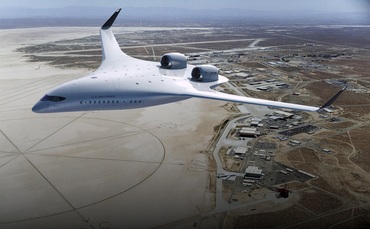EasyJet Partners with JetZero for Hydrogen-Powered Blended-Wing Aircraft Innovation
Key Ideas
- EasyJet has partnered with JetZero to develop blended-wing aircraft for more fuel-efficient and hydrogen-powered flights by 2030.
- The innovative blended-wing design aims to reduce fuel consumption by up to 50%, support hydrogen-powered planes, and enable zero-emission flight.
- The partnership aligns with EasyJet's goal of achieving net zero emissions by 2050 through collaborations with industry partners and investments in sustainable aviation technologies.
- A survey by EasyJet revealed that a majority of British holidaymakers see hydrogen fuel cell aircraft as the top choice for decarbonizing aviation and are excited about flying in zero-emission aircraft.
EasyJet has announced a partnership with US aviation tech start-up JetZero to accelerate the development of blended-wing aircraft. The innovative blended-wing design is aimed at being more fuel-efficient and capable of facilitating zero-emission hydrogen-powered flight by 2030. EasyJet becomes the first European airline to collaborate with JetZero, which is already working with US Air Force, NASA, and FAA on this project. The blended-wing body design is expected to bring a significant leap in commercial aircraft design, potentially reducing fuel consumption by up to 50% per passenger. Moreover, the design allows for heavier engines and fuel without compromising passenger capacity, making it suitable for hydrogen-fuel cell powertrains. EasyJet plans to share its knowledge in developing hydrogen propulsion systems and explore using the blended-wing design to support hydrogen-powered planes in the future. The partnership aims to support EasyJet's goal of achieving net zero emissions by 2050 and reducing its carbon intensity. A survey conducted by EasyJet revealed that a majority of British holidaymakers are interested in sustainable travel, view hydrogen fuel cell aircraft as the best option for decarbonizing aviation, and are excited about the prospect of flying in zero-carbon emissions aircraft. EasyJet's CEO highlighted the importance of technological advancements and government support to preserve the social and economic benefits of flying for future generations.
